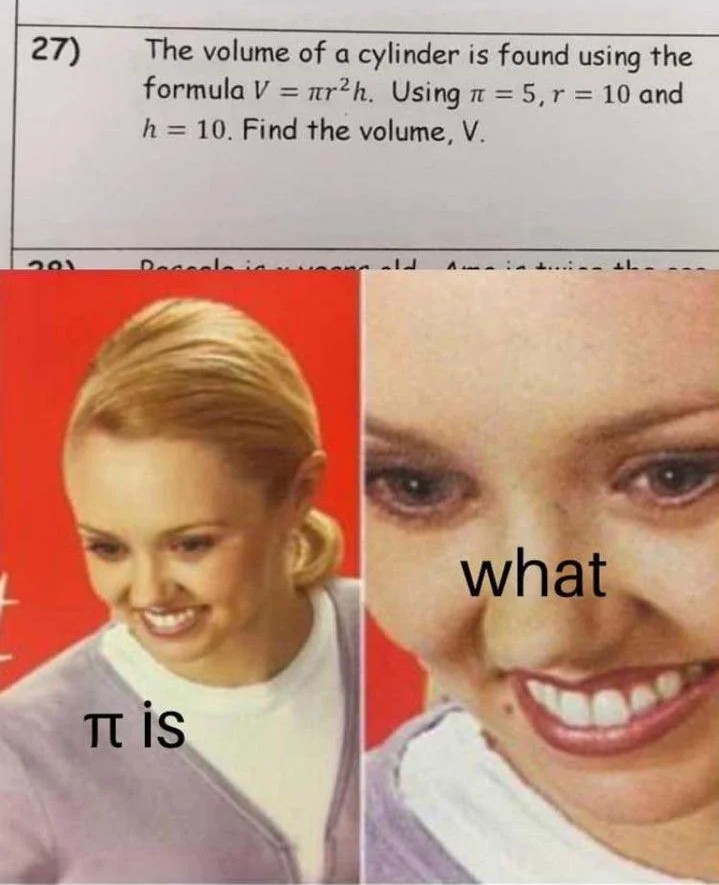this post was submitted on 21 Apr 2024
418 points (96.2% liked)
Science Memes
11004 readers
2725 users here now
Welcome to c/science_memes @ Mander.xyz!
A place for majestic STEMLORD peacocking, as well as memes about the realities of working in a lab.

Rules
- Don't throw mud. Behave like an intellectual and remember the human.
- Keep it rooted (on topic).
- No spam.
- Infographics welcome, get schooled.
This is a science community. We use the Dawkins definition of meme.
Research Committee
Other Mander Communities
Science and Research
Biology and Life Sciences
- [email protected]
- [email protected]
- [email protected]
- [email protected]
- [email protected]
- [email protected]
- [email protected]
- [email protected]
- [email protected]
- [email protected]
- [email protected]
- [email protected]
- [email protected]
- [email protected]
- [email protected]
- [email protected]
- [email protected]
- [email protected]
- [email protected]
- [email protected]
- [email protected]
- [email protected]
- [email protected]
- [email protected]
- !reptiles and [email protected]
Physical Sciences
- [email protected]
- [email protected]
- [email protected]
- [email protected]
- [email protected]
- [email protected]
- [email protected]
- [email protected]
- [email protected]
Humanities and Social Sciences
Practical and Applied Sciences
- !exercise-and [email protected]
- [email protected]
- !self [email protected]
- [email protected]
- [email protected]
- [email protected]
Memes
Miscellaneous
founded 2 years ago
MODERATORS
you are viewing a single comment's thread
view the rest of the comments
view the rest of the comments

Kind of curious how you got that value. I think the ratio of circumference to diameter ("pi") is actually smaller in spherical geometry, in the most extreme case (the equator) it's just 1. You could say "pi = 5" for circles of a specific radius in hyperbolic geometry, I guess.
my mistake was using the sum of angles in a triangle which was kinda dum but whatever . I also tried calculating via the circumstance of a circle placed at a pole where π was 20x smaller for the case I was using but its not linear so I looked deeper which was a big mistake .
BTW the ratio of circumstance to radius for a circle which is also an equator of the space is ¼ not 1 (r=½π₀ , C=2π₀) .
I think you mean 4, which makes the ratio of circumference to diameter 2 (either way, no idea how I messed up that one).
oopsie :3